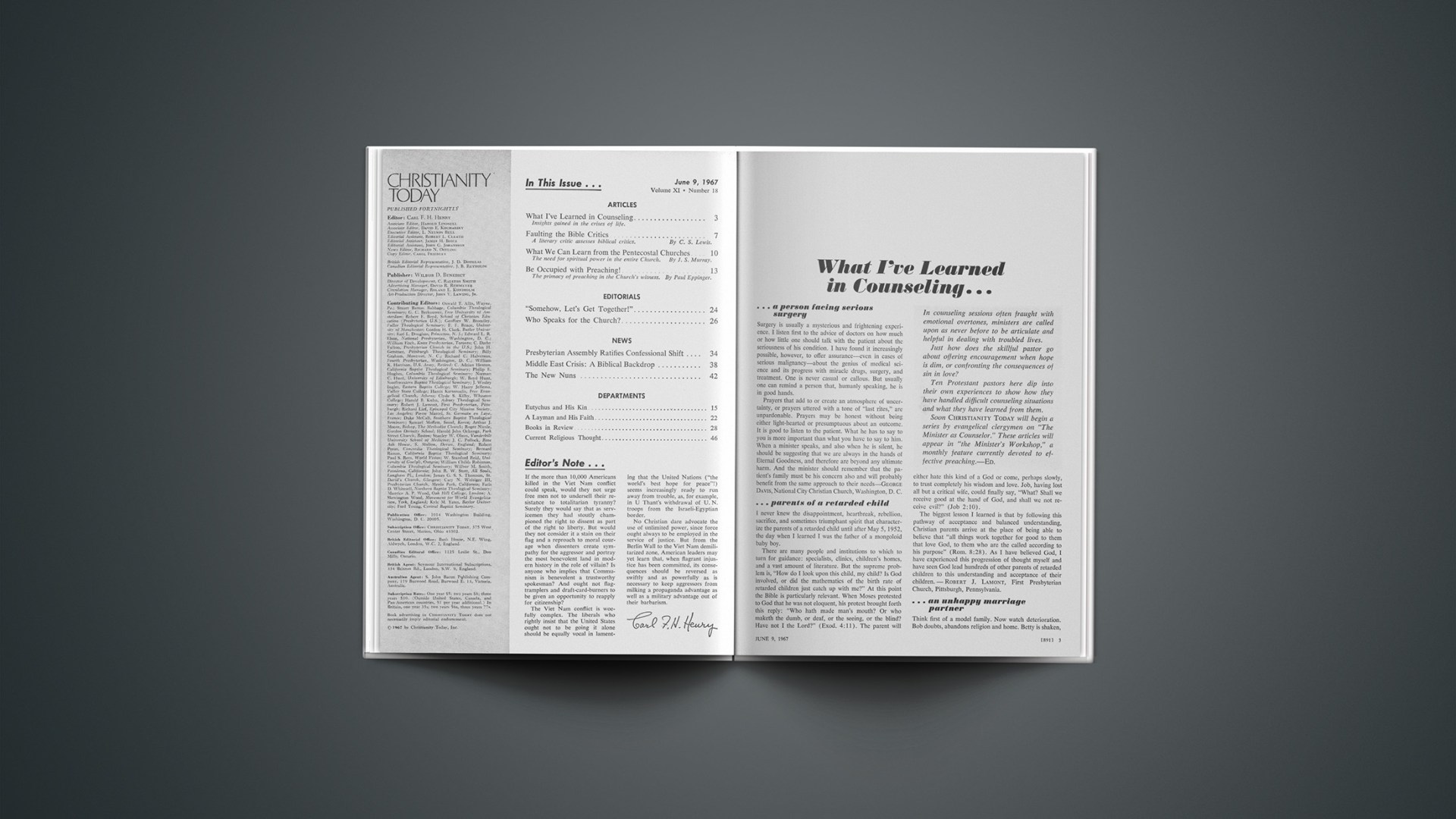If the more than 10,000 Americans killed in the Viet Nam conflict could speak, would they not urge free men not to undersell their resistance to totalitarian tyranny? Surely they would say that as servicemen they had stoutly championed the right to dissent as part of the right to liberty. But would they not consider it a stain on their flag and a reproach to moral courage when dissenters create sympathy for the aggressor and portray the most benevolent land in modern history in the role of villain? Is anyone who implies that Communism is benevolent a trustworthy spokesman? And ought not flag-tramplers and draft-card-burners to be given an opportunity to reapply for citizenship?
The Viet Nam conflict is woefully complex. The liberals who rightly insist that the United States ought not to be going it alone should be equally vocal in lamenting that the United Nations (“the world’s best hope for peace”!) seems increasingly ready to run away from trouble, as, for example, in U Thant’s withdrawal of U. N. troops from the Israeli-Egyptian border.
No Christian dare advocate the use of unlimited power, since force ought always to be employed in the service of justice. But from the Berlin Wall to the Viet Nam demilitarized zone, American leaders may yet learn that, when flagrant injustice has been committed, its consequences should be reversed as swiftly and as powerfully as is necessary to keep aggressors from milking a propaganda advantage as well as a military advantage out of their barbarism.










